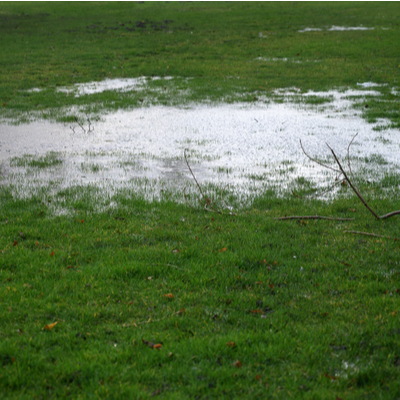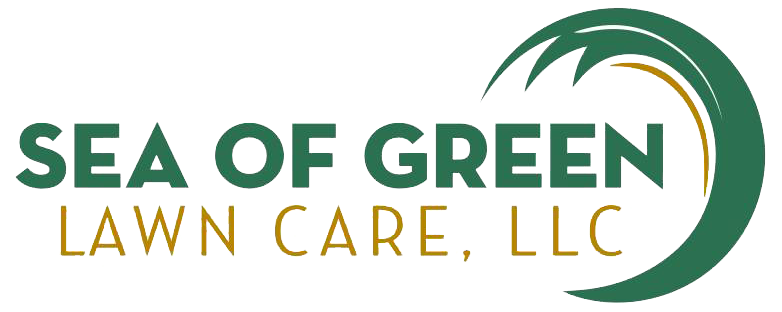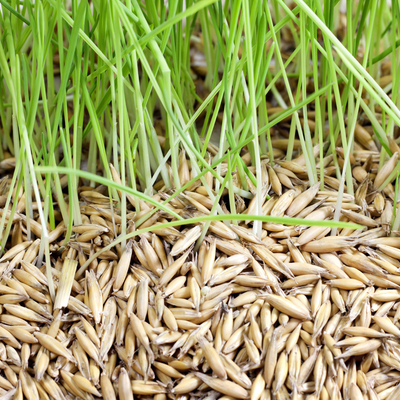Is your Massachusetts lawn tired and fatigued? Is it experiencing patchy bare spots or water runoff? It may be in need of seasonal aeration. Living in Massachusetts, we are blessed with sunshine and warmer temperatures year-round. This summer was no exception, and with the COVID pandemic hanging around, most of us utilized our backyard spaces more than usual.
What may usually serve as a place to enjoy a cup of coffee, read a book, or host a family barbecue, recently became your family’s staycation. While not a bad thing, all of this overuse may have created soil compaction and excessive thatch build-up.
Thatch is a build-up of organic and inorganic matter, including dead grass clippings, dead leaves, and other debris that builds up as a layer right underneath your grass. An overabundance of  thatch can prevent your lawn from receiving the vital nutrients, air, and water your turf needs to thrive. Without these essential elements, your grass will dehydrate, weaken, and eventually die.
thatch can prevent your lawn from receiving the vital nutrients, air, and water your turf needs to thrive. Without these essential elements, your grass will dehydrate, weaken, and eventually die.
Telltale Signs Your Yard Has Compacted Soil:
- Stressed or thinning brown patches
- Shallow rooting of shrubs and trees
- Bare, patchy lawn spots
- The pooling of water in low-grade areas
- Water run-off that doesn’t absorb into the ground
- Firm soil that is too tough to dig with a shovel
- An influx of insect infestations
- Increase in grubs
Traditional lawn care methods will not help in this situation because the compacted soil prevents them from reaching the roots. Fortunately, there is a solution, and it’s called aeration.
What is Lawn Aeration?
Aeration is the process of creating holes throughout your lawn to redistribute your soil. This can be done through a specialized machine that extracts tiny plugs from your grass, through customized boots or liquid aeration. Doing so allows fertilizer, water, and air to flow back into the soil, loosening it up, and allowing for better water drainage at the same time. There are many advantages to having aeration performed. Listed below are just some of the most beneficial.
Aeration helps to break down the thatch build-up that is blocking your roots from absorbing the essential water and nutrients.
- It improves water and fertilizer intake
- It helps to promote stronger roots
- It reduces soil compaction
- Eliminates water runoff and puddling
- Improves your lawn’s resistance to drought
When is the Best Time to Aerate Your Lawn?
Aeration is a service that should be done once a year or once every other year. While it can be done anytime during the growing season, here in North Carolina, we recommend having aeration and overseeding performed in the fall. Core aeration in the fall will help strengthen your grassroots in preparation for the frigid winter. This will set your lawn up for success next spring.
Overseeding
Once your lawn has been properly aerated, it is ready for overseeding. This is the process of strategically placing seeds on top of bare, patchy areas and introducing new grass seeds with the existing turf. This is the final step in ensuring your yard is the healthy, green, vibrant place you and your family will want to continue spending your free time. It’s also a good idea to make sure the soil is moist before your aeration service. Watering the lawn a couple of days before the service will make sure the tines from the aerator can easily penetrate the soil.
Preparing Your Lawn For Aeration and Overseeding
At Sea of Green, we recognize that core aeration is an integral component of every long-term lawn care solution. Our team of trained and skilled professionals always utilizes state-of-the-art equipment and industry best practices to strategically remove small plugs of soil throughout the property.
Sea of Green’s aeration and overseeding services can be used alone or as part of our comprehensive lawn care strategy. We work with our customers to develop individualized approaches. Learn more about our aeration and overseeding services by calling us at 978-465-8788 or leave us a message online here. Want to learn about other topics relating to pest control and lawn care? Browse our monthly blog and like us on Facebook.

